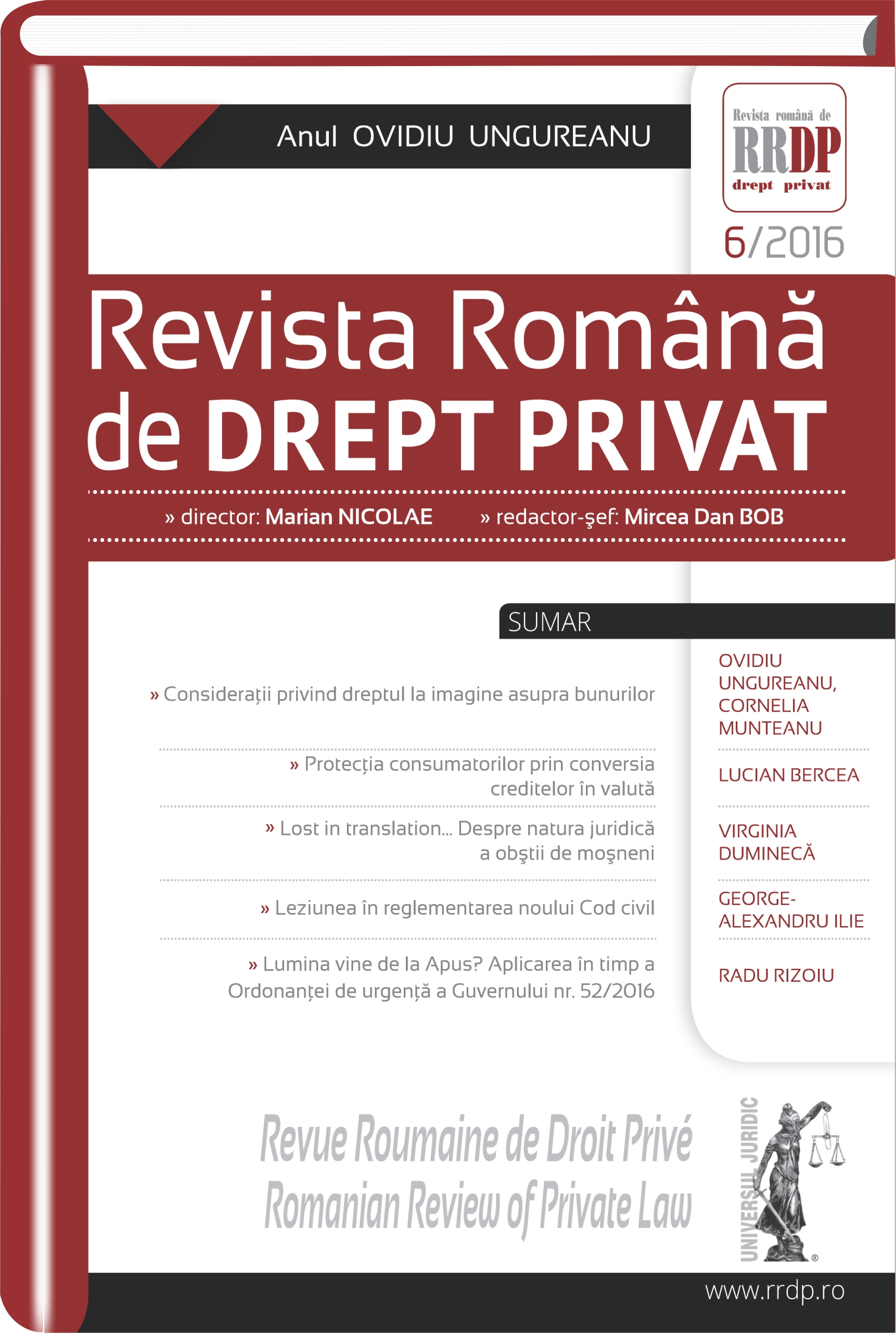Lost in translation... Despre natura juridică a obştii de moşneni
Lost in translation... About the legal nature of the
„obşte de moşneni”.
Author(s): Duminecă VirginiaSubject(s): Law, Constitution, Jurisprudence
Published by: Universul Juridic
Keywords: obşte; property; individual property; common property; legal entity; village; forest; Law no. 1/2000;
Summary/Abstract: The article follows the institution of the obşte (originally representing a community of free people whose main activity was agriculture), through its functional and normative transformation that had a strong link with the succession of the ways of possessing land within our country’s territory. The short trip down the history of the obşte, and the present organization of two such institutions becomes the start of the questioning of the legal nature of the obşte. We will try to prove that, in the Romanian law system, since the Forest Code was adopted in 1910, the obştes has become a legal entity, and the common property formerly acknowledged to the members became the individual property of these new legal entities. The situation remained the same after the adopting of law no. 1/2000, but the legal literature and case-law, as well as the public perception maintained the idea of common property on the forests even one century later. Opposite to the “historic obşte”, where the possession of the land was included in a whole and interdependent complex of social, economic, and of customary law relationships, that was the mechanism of a whole rural community, presently, the legal framework sums up the “present obşte” as a legal system of administration and exploitation of resources consisting of the forests through a legal entity.
Journal: Revista Română de Drept Privat
- Issue Year: 2016
- Issue No: 06
- Page Range: 75-110
- Page Count: 36
- Language: Romanian
- Content File-PDF

